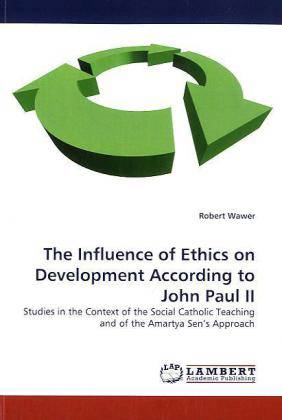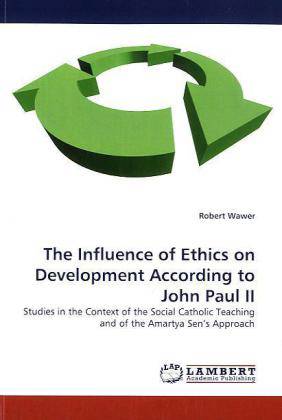
- Afhalen na 1 uur in een winkel met voorraad
- Gratis thuislevering in België vanaf € 30
- Ruim aanbod met 7 miljoen producten
- Afhalen na 1 uur in een winkel met voorraad
- Gratis thuislevering in België vanaf € 30
- Ruim aanbod met 7 miljoen producten
Zoeken
The Influence of Ethics on Development According to John Paul II
Studies in the Context of the Social Catholic Teaching and of the Amartya Sen's Approach
Robert Wawer
Paperback | Engels
€ 58,45
+ 116 punten
Omschrijving
Mass-media can be used for the proliferation of positive and negative ethical values. Theological reflection about the communication of values by the mass media is very urgent. Pope John Paul II has such a conviction, and says: "There is no doubt that the electronic revolution holds out the promise of great positive breakthroughs for the developing world; but there is also the possibility that it will in fact aggravate existing inequalities as the information and communications gap widens. How can we ensure that the information and communications revolution which has the Internet as its prime engine will work in favor of the globalization of human development and solidarity, objectives closely linked to the Church's evangelizing mission?" This work presents theological reflection on social ethics about communication in connection to economics. The purpose of this work is to present Roman Catholic Social Teaching about social communications with particular reference to John Paul II's teaching, and is an attempt to find common ground with the economic approach of Amartya Kumar Sen.
Specificaties
Betrokkenen
- Auteur(s):
- Uitgeverij:
Inhoud
- Aantal bladzijden:
- 124
- Taal:
- Engels
Eigenschappen
- Productcode (EAN):
- 9783838356860
- Verschijningsdatum:
- 6/07/2010
- Uitvoering:
- Paperback
- Afmetingen:
- 150 mm x 220 mm
- Gewicht:
- 191 g

Alleen bij Standaard Boekhandel
+ 116 punten op je klantenkaart van Standaard Boekhandel
Beoordelingen
We publiceren alleen reviews die voldoen aan de voorwaarden voor reviews. Bekijk onze voorwaarden voor reviews.











